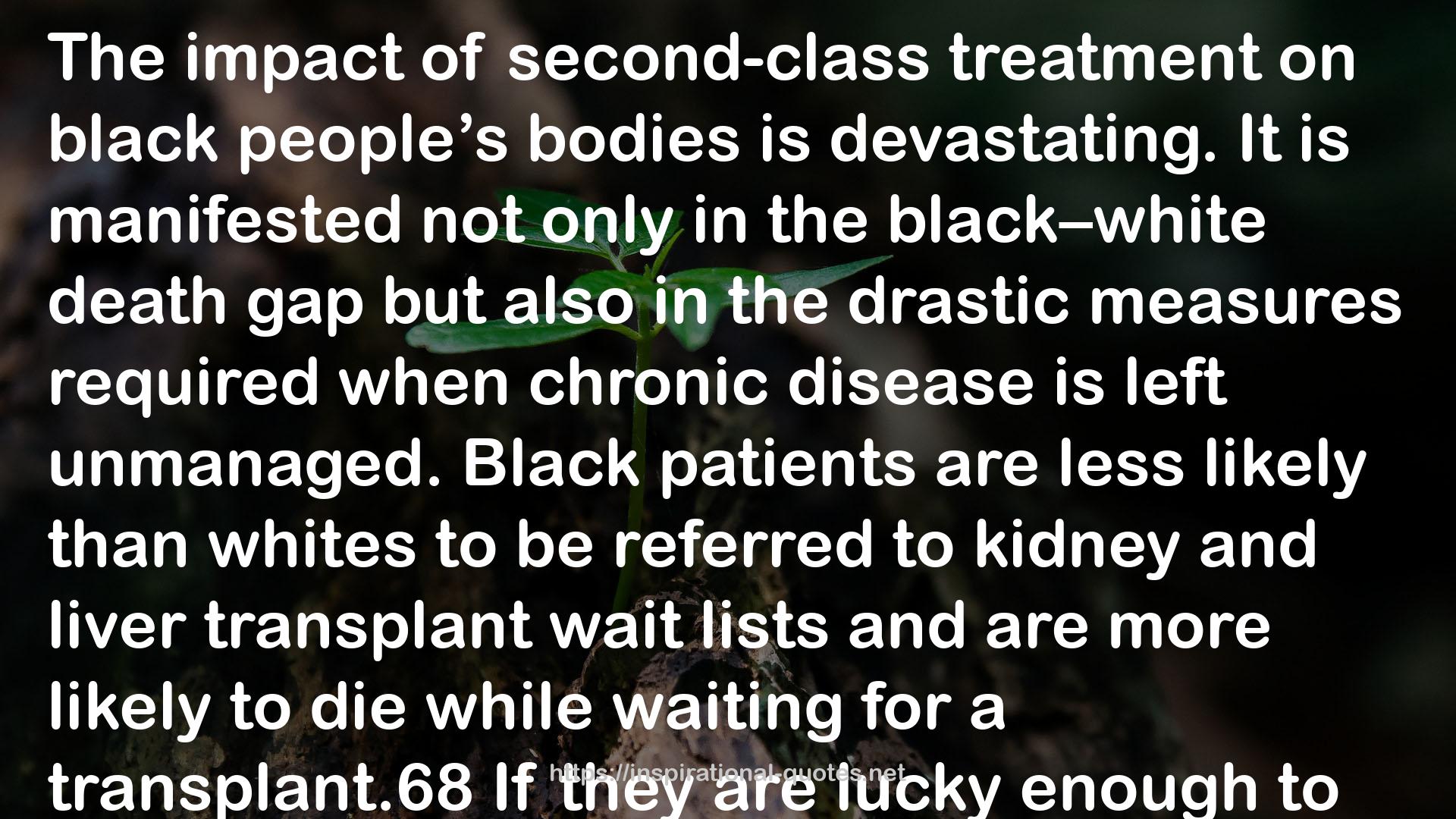" The impact of second-class treatment on black people’s bodies is devastating. It is manifested not only in the black–white death gap but also in the drastic measures required when chronic disease is left unmanaged. Black patients are less likely than whites to be referred to kidney and liver transplant wait lists and are more likely to die while waiting for a transplant.68 If they are lucky enough to get a donated kidney or liver, blacks are sicker than whites at the time of transplantation and less likely to survive afterward. “Take a look at all the black amputees,” said a caller to a radio show I was speaking on, identifying the remarkable numbers of people with amputated legs you see in poor black communities as a sign of health inequities. According to a 2008 nationwide study of Medicare claims, whites in Louisiana and Mississippi have a higher rate of leg amputation than in other states, but the rate for blacks is five times higher than for whites.69 An earlier study of Medicare services found that physicians were less likely to treat their black patients with aggressive, curative therapies such as hospitalization for heart disease, coronary artery bypass surgery, coronary angioplasty, and hip-fracture repair.70 But there were two surgeries that blacks were far more likely to undergo than whites: amputation of a lower limb and removal of the testicles to treat prostate cancer. Blacks are less likely to get desirable medical interventions and more likely to get undesirable interventions that good medical care would avoid. "
― Dorothy Roberts , Fatal Invention: How Science, Politics, and Big Business Re-create Race in the Twenty-First Century
